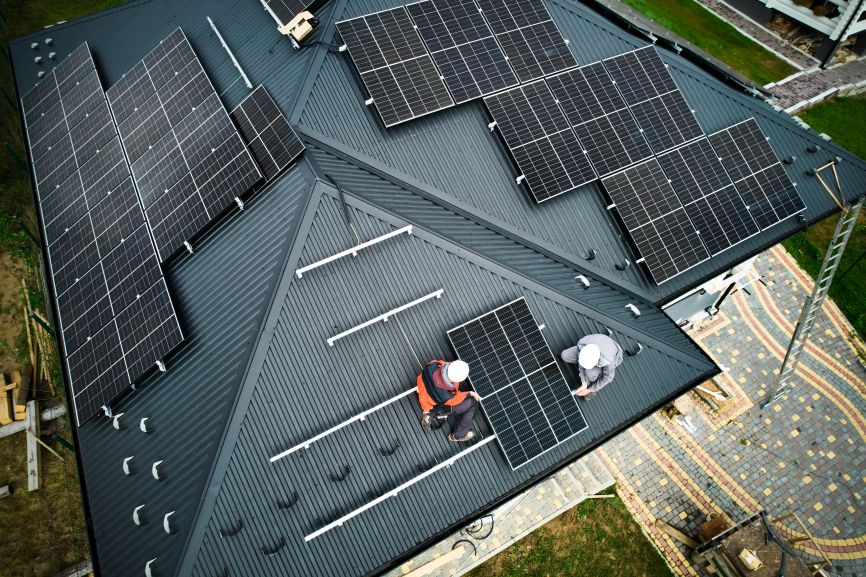Black Solar Panels: Are They the Right Choice for Your Home?
If you’re a Massachusetts homeowner considering solar, you’ve probably noticed that some panels look sleek and all-black while others have a bluish tint. The choice isn’t just about looks. Many homeowners worry: Are black solar panels better? Will they work well in New England weather? Are they worth the extra cost? At EcoSunWorks, we simplify this decision by explaining the differences clearly and connecting you with trusted local installers who know how these panels perform on real MA rooftops.

What Are Black Solar Panels?
Black solar panels, often called monocrystalline panels, are made from a single, high-purity silicon crystal. This gives them:
- A uniform, jet-black appearance
- Higher efficiency compared to blue (polycrystalline) panels
- A sleeker look that blends with dark shingles
They’re the panels most often used in residential projects today, especially for homeowners who want maximum curb appeal.
Are Black Solar Panels Better?
Here’s the thing -it depends on what “better” means for you.
Advantages of black solar panels:
- Higher efficiency: They capture sunlight more effectively, producing more power in less space.
- Better performance in low light: Useful in New England where cloudy days are common.
- Aesthetics: Their sleek design appeals to many homeowners (and can even boost resale value).
When they may not be the best fit:
- Cost: They’re typically more expensive than polycrystalline panels.
- Heat: Black panels absorb more heat, which can slightly reduce performance in hot climates – less of a concern in Massachusetts.
Which Solar Panels Are Black?
The most common black panels are:
- Monocrystalline panels (all-black, slim design, high efficiency)
- Premium all-black modules where even the frame and backsheet are dark for a seamless look
By contrast, polycrystalline panels appear blue with visible crystal patterns.
Disadvantages of Black Solar Panels
No product is perfect. Some potential drawbacks include:
- Higher upfront cost
- Potential for heat absorption in very hot regions (again, not a big factor in Massachusetts)
- Slightly less eco-friendly production process than polycrystalline panels
Still, for homeowners in Central Massachusetts, the efficiency and aesthetics often outweigh these drawbacks.
Black vs. Blue Solar Panels: Which Should You Choose?
| Feature | Black Panels (Mono) | Blue Panels (Poly) |
| Appearance | Sleek, modern, uniform black | Blue, speckled |
| Efficiency | Higher (18–22%) | Lower (14–17%) |
| Cost | Higher | Lower |
| Space Needed | Less | More |
If your roof space is limited -common in older MA homes -black panels are usually the smarter choice.
How Black Solar Panels Perform in Massachusetts
New England weather is unpredictable. Black solar panels tend to:
- Handle cloudy conditions better than poly panels
- Work efficiently even in colder months (solar actually performs better in cooler temps)
- Withstand snow loads when installed with proper racking systems
Making the Right Choice with EcoSunWorks
Too many homeowners spend hours comparing panel types, only to feel more confused. At EcoSunWorks, we cut through the noise. We’ll walk you through the options, explain how black panels compare for your specific roof, and connect you with trusted Central Massachusetts installers who’ve already worked on homes like yours.
If you want clarity, confidence, and a solar system that truly fits your home, our team is here to guide you.
Call today to get a free quote!
